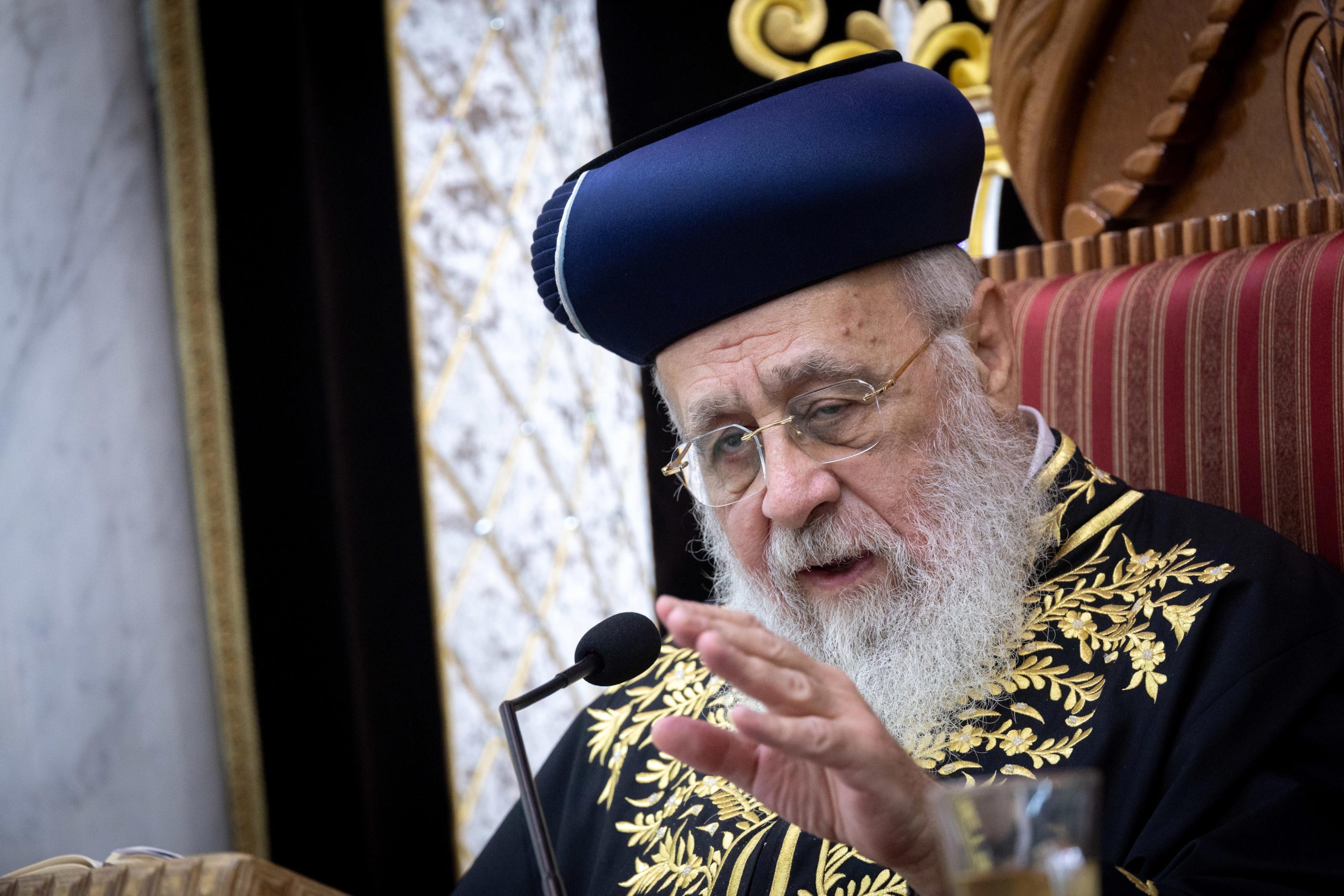The Tragedy of the Five Soldiers and a Call for Torah Study
The recent death of five soldiers, including four from the IDF’s Netzah Yehuda Battalion, in Beit Hanun has sparked a deep reflection within the Jewish community. In an open letter, the former Sephardic chief rabbi of Israel, Yitzhak Yosef, attributed the tragedy to a “neglect of Torah study.” This statement has raised questions about the role of religious education in times of conflict and the broader implications for the military and society.
A Call to Action
Yosef emphasized that the lack of dedication to Torah study can lead to significant consequences, as seen in the tragic loss of life. He urged Torah scholars to strengthen their commitment to religious learning, especially during the summer months when many yeshivas take a break known as Bein Hazmanim. This period, which translates to “between the times,” is typically marked by a suspension of formal studies and students leaving the yeshiva environment.
The rabbi expressed his sorrow over the loss of the soldiers, highlighting the immense responsibility that Torah Jews bear. He called for soul-searching among the community and offered condolences to the families of the fallen. His message resonated with many, prompting discussions on how to balance religious devotion with the demands of modern life.
The Role of the Netzah Yehuda Battalion
The Netzah Yehuda Battalion is composed primarily of Orthodox and haredi men who opt for military service in an environment that aligns with their values and beliefs. This unique composition reflects the diverse nature of the Israeli military and the importance of maintaining a sense of community among soldiers.
Yosef’s leadership as the Sephardic chief rabbi of Israel, also known as Rishon LeZion, was marked by his dedication to religious and communal affairs. He served in this capacity from 2013 until June 2024. As the sixth son of Ovadia Yosef, a prominent spiritual leader and founder of the Shas political party, Yosef inherited a legacy of influence and responsibility.
Succession and Legacy
Following his father’s passing in 2013, Yosef became the spiritual leader of Shas. His younger brother, David Yosef, succeeded him as the Sephardic chief rabbi, continuing the family’s legacy of leadership within the community.
The military has recently initiated a significant recruitment drive targeting haredim, marking the largest coordinated effort in this sector. This campaign aims to summon all 54,000 remaining eligible haredim for IDF service, highlighting the ongoing challenges and opportunities in integrating different segments of society into the national defense.
Controversial Statements and Public Reaction
In a separate incident, a journalist named Israel Frey, who identifies as a Haredi left-wing journalist, faced an investigation by the Israel Police after expressing joy over the deaths of the five IDF soldiers. Frey posted on X, stating, “The world is a better place this morning, without five young men who participated in one of the most brutal crimes against humanity.”
His comments sparked a heated debate about the responsibilities of journalists and the ethical implications of expressing such sentiments. Frey further elaborated on his views, emphasizing the need for individuals to take a clear stance on issues of war and morality. His posts highlighted the complexities of navigating public opinion and the moral dilemmas faced by those in the media.
This situation underscores the importance of responsible journalism and the impact of public statements on societal discourse. As the community grapples with these issues, the call for unity and understanding remains crucial. The events surrounding the deaths of the soldiers and the subsequent reactions serve as a reminder of the delicate balance between personal beliefs and collective responsibility.







